Yanyuan, a small and exquisite Jiangnan garden
★ Tourist location: Yanyuan, Changshu, Suzhou
Yan Garden is not far from Fangta Garden. It was built by Jiang Yuanshu, the son of Jiang Pu, a scholar of Dongge during the Qianlong period of the Qing Dynasty, and then an observer of Taiwan and Penghu in Fujian who was also studying politics. It was originally named Jiang Garden. During the Daoguang period of the Qing Dynasty, the garden was owned by Jiang Yinpei, the county magistrate of Tai 'an, Shandong Province. It was renamed Yanyuan in the sense that it would return to Changshu like the return of Yan, and Ge Yuliang, a famous man in the Jin Mausoleum, was invited to build the "Yangu Huangshi Rockery". Later, Gui Lingyu, the magistrate of Changshu, purchased it, and Yanyuan returned to the Jiang family during the Guangxu period. It was reacquired by Ai Hongkui, the great-great-grandson of Jiang Yuanshu. In the late Qing Dynasty, Zhang Hong, a doctor from the Ministry of Foreign Affairs, purchased Yanyuan, also known as Zhang Yuan. Zhang Hong called himself the Old Man of Yangu and completed "Continuation of Nien Sea Flowers" in the garden.
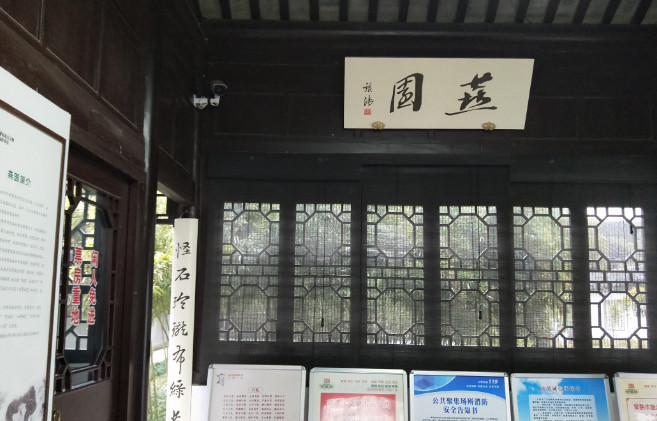
In terms of the scale of the garden, Yanyuan is really not large, covering an area of only four acres. However, it has twists and turns, ingenious conception, and a collection of scenic scenery. As a result, it has become a famous garden in Suzhou and enjoys the reputation of "Sixteen Scenes of Yan Garden".
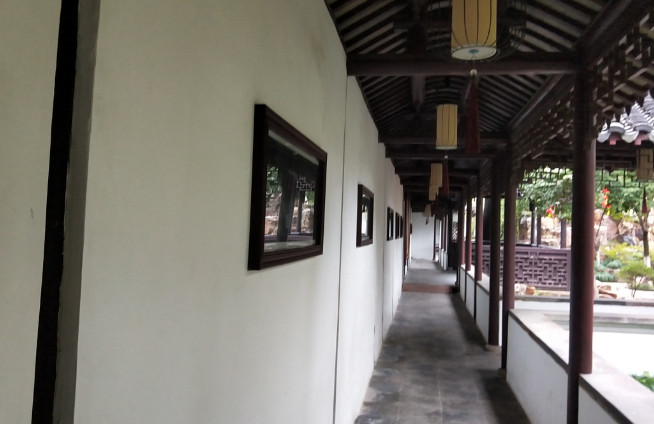
At the entrance is Tong Chuxian Hall, which turned out to be a private school where the Jiang family provided tutoring to younger generations. There are four study halls in total. During the orchid season, this is the first stop for orchid lovers. A large number of orchids will be placed, and the furnishings are relatively simple in ordinary times.
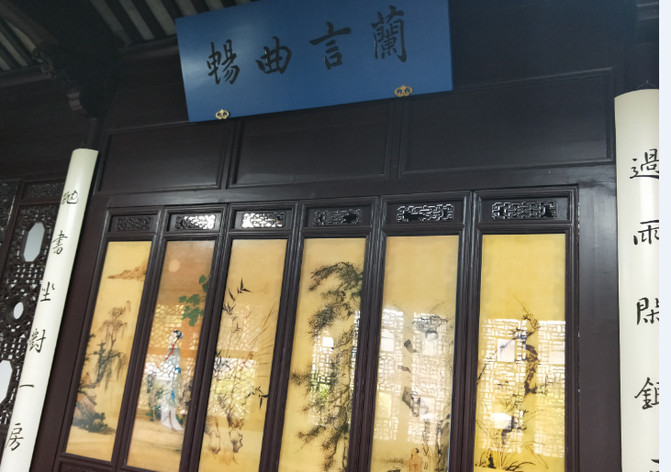
From the stele corridor on the left, you can go straight to the Sanchanjuan Room. It is said that they are named because there are three lake stones in front of the hall shaped like beautiful women. Although this name sounds a bit awkward to read, the meaning is still very beautiful. There is a related poem in Zhang Fengyu's "Copy of Poems on the Bottle of Hualu":"New Zealand is quiet and quiet, new willows are beautiful and beautiful, new moon smiles, and it becomes this three-pronged beauty, proud of him in the forest, and sleeping alone with plum blossoms." Therefore, it is also possible that the name came from the three shadows of Hsinchu, Jiaoliu, and the crescent moon in the sky.
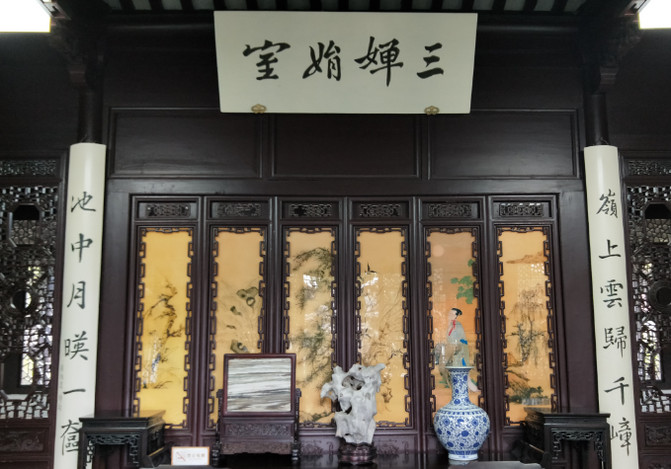
This mandarin duck style four-sided hall building has the same structure as the 36 Mandarin duck halls in Suzhou Humble Administrator's Garden, but the garden is small and the size is slightly smaller. In the center are five vertical axis paintings, with couplets on both sides and a plaque reading "Lan Yan Qu Chang" written on the back.
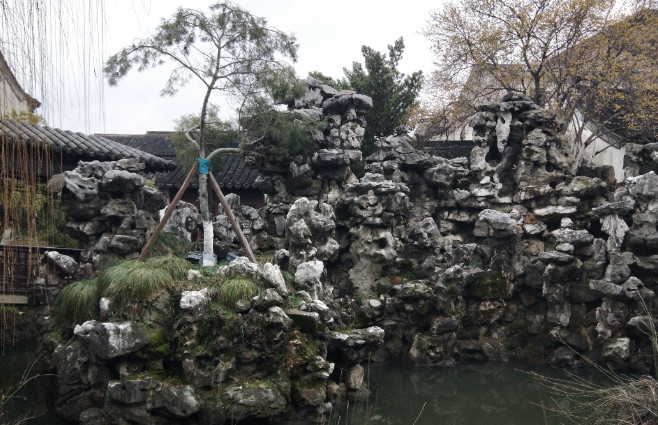
In front of Juan Room, there are seventy-two stone monkey rockery, also known as Jinyin Mountain. Judging from the names, there should be seventy-two monkeys, but the number is too large, and we don't have the patience to count them one by one. Anyway, we can find several monkey-shaped stones. Under the rockery is a small pool. Although the area is small, the rockery looks lively because of the water. The trees on the rockery are not big and look very elegant. The rockery is adjacent to Tongchuxian Hall, which is also a place for young children to play after school.
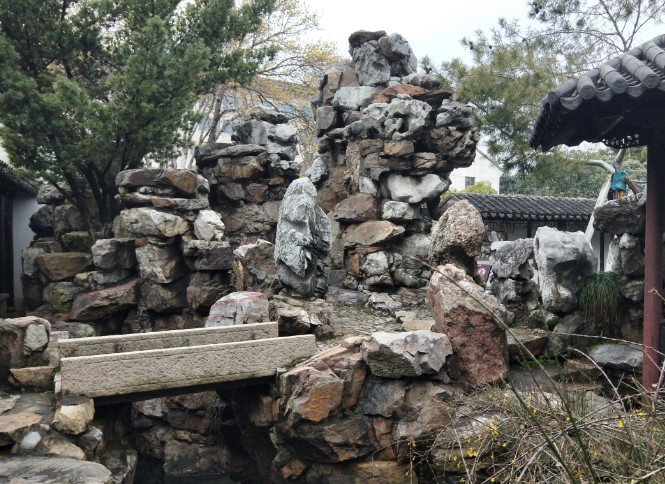
There is Mengqing Lotus Nunnery on the side. This name is too long, even more awkward than Sanchan Juan Room. The two-story building, painted red, is a place for the goddess of the sea, and a place for the daughters of the Jiang family to recite Buddha and burn incense. In the forty-fifth year of Qianlong of the Qing Dynasty, Jiang Yuanshu stepped down as the prefect of Taiwan. He was in danger at sea on his way back to Changshu due to illness. After returning safely, he built this nunnery. During the Qing Dynasty, sacrifices to Mazu, the sea god, were popular in southeastern China and Taiwan, praying for Mazu to eliminate floods and protect him safely across the sea. The 23rd day of the third month of the lunar calendar every year is Mazu's birthday. The old owners of Yanyuan often pay incense here. The Buddha hall enshrines the statue of Mazu, with a plaque titled "Tianhou Benevolence".
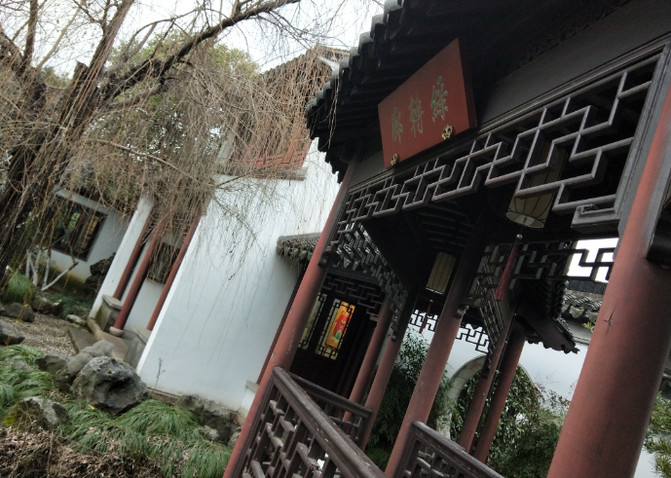
From next to Lotus Nunnery, you can lead from the Green Turn Corridor to Tongchuxian Hall. It is like a garden in a garden, very exquisitely arranged, with small bridges, flowing water, and corridors and platforms.
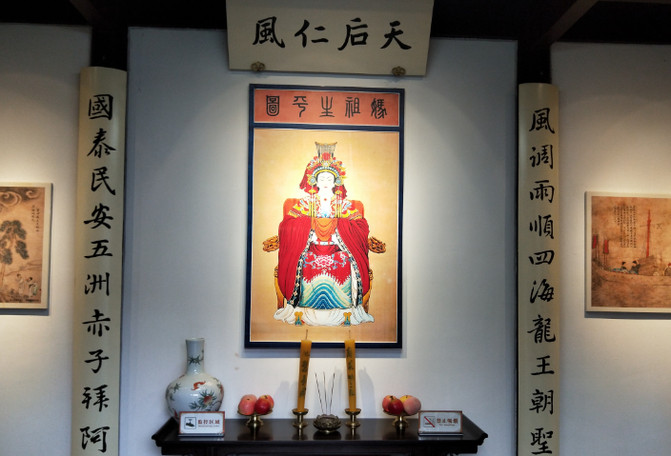
Nearby is the Bingling Gong Hall Theater, which turned out to be part of the Bingling Gong Hall. Bingling Gong Hall was built in the 18th year of Hongwu of the Ming Dynasty to worship the fire god. It has been built and demolished many times in the past, and once became a Catholic church in the early Qing Dynasty. When the Taiping Rebellion destroyed the temple, the theater building was renovated on a major scale and used as a venue for performances to inspire the fighting spirit of officers and soldiers. The theater building is divided into two floors. The lower floor is relatively simple and the upper floor is relatively exquisite. The plaque "Celebrate the Whole World" may have been hung up later and is also the place for the performance. The face is 14.5 meters wide and the depth is 10 meters. The front eaves are decorated with wood carvings, cloud cranes and figure patterns. The shape of a bucket arch is carved on the bricks along the rear eaves, which is basically intact. There are some introductions of Bingling Gong and Bingling Gong Hall on the wall, with detailed pictures and texts.
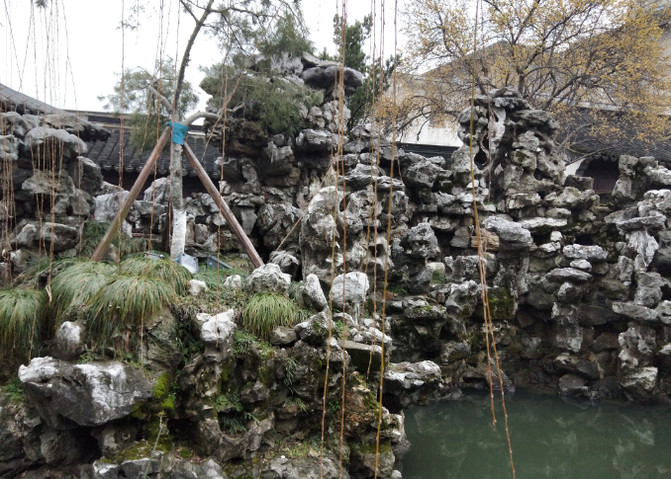
After passing through the poetry realm, there is a peony garden, but it is not the peony season, so it looks like a deserted garden, which is really deserted.
Yangu Dongtian is the core attraction of Yanyuan. It spans the east and west of the park. It is dangerous and beautiful. It is the most scenic spot in Yanyuan. Like the lake stone rockery at Huanxiu Villa in Suzhou, it is a surviving masterpiece of Ge Yuliang, a famous stone stacker in the Jin Mausoleum. The stacking of Yan Valley is based on the Yushan Sword Gate and the Yushan Yellowstone as raw material. It is made of local materials and is diverse. In the south of the mountain, there is stream water that meanders into the cave and is integrated with the rockery. Yangu Cave is also one of the eighteen scenic spots in Yushan.
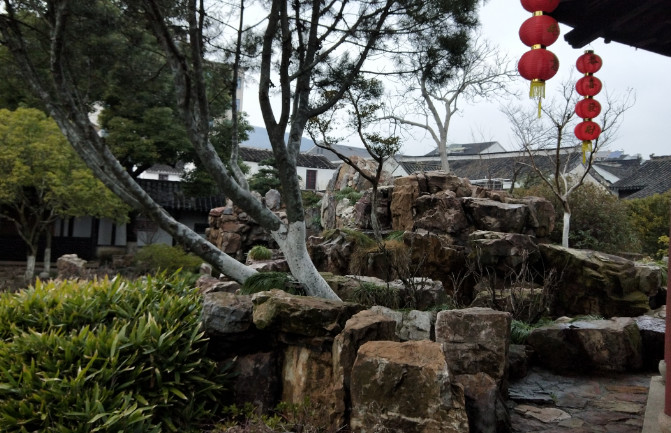
The Poetry Pavilion is a place where the owner of the garden and literati and celebrities recite the wind and the moon. The Pavilion has listed poems by celebrities in the government and the public. Celebrities such as Ruan Yuan and Qian Yong in the Qing Dynasty have written poems about harmony. This is the best view of Yanyuan, and may also be the highest place in the whole park. Climbing up and looking into the distance, you can see the beautiful trees in the valley and the panoramic view of Yangu Cave.
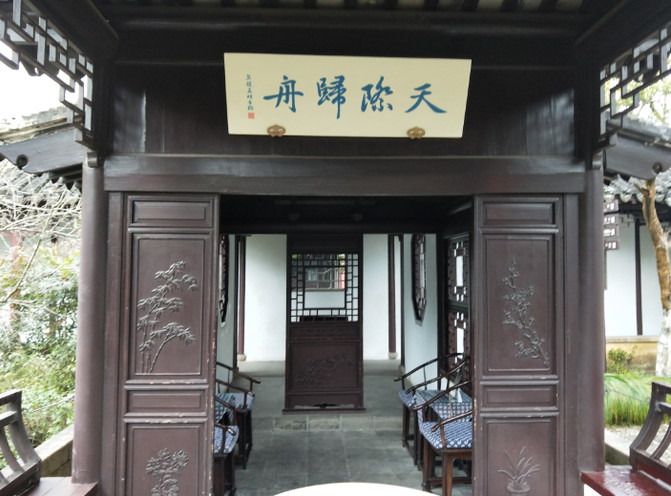
The boat returning to the sky is a dry boat near the water, and almost all gardens in the south of the Yangtze River have this configuration. Renting a house is a freehand symbol of Jiangnan water town. The meaning of this boat returning to the sky is that the owner of the park lives outside all year round, and "Northern Yan returning to the south" represents the return of fallen leaves to their roots.
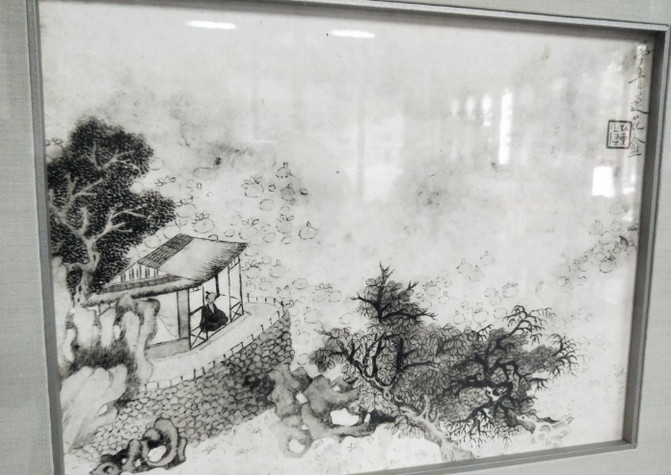
Next to it, there is a pavilion leaning against the wall, but it is slightly larger than ordinary pavilions and is also square in shape. There is "Yan Yuan Ji" on the wall. From here, you can stare at Yan Valley. In autumn, the scenery will be more beautiful.
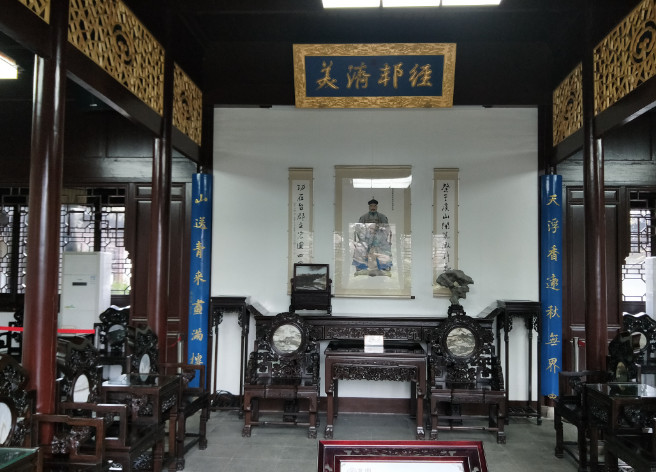
Wuzhi Hall is one of the main buildings in Yanyuan. It is a place where the owner of the garden welcomes relatives and friends. "Five Ganoderma" are the five types of divine Ganoderma mentioned by ancient alchemists. They are red, yellow, black, white and purple. Taking them can lead to eternal life. Of course, this is just a myth and legend. Have you ever seen a five-color natural ginseng? It is really a divine mushroom. However, taking this name also expresses the health and longevity that the garden owner, or ordinary people, yearns for. Zhang Fengyu once wrote a poem in the Qing Dynasty: "Ganoderma lucidum produces rotten flowers (you have to add a wooden character next to it, you can't type it in the font). Physics is accidental. Where corruption cannot be corrupted, business will be prosperous and more prosperous. To recognize nature here, one has power without trees." A very philosophical poem.
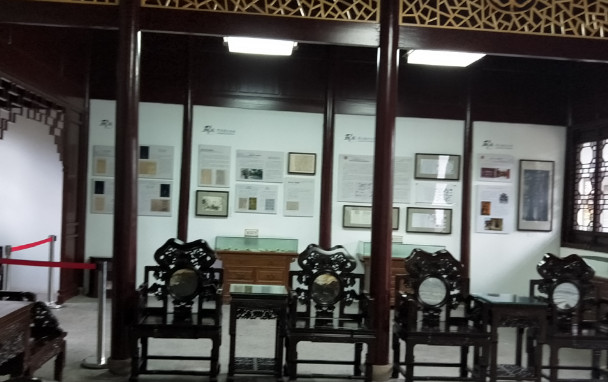
Wuzhi Hall is beautifully decorated and is worthy of being the facade of Yanyuan. In the middle is a sitting portrait. I don't know which generation of garden owner it was, but it should have been placed there by later generations. During the orchid exhibition, the most orchids were placed here because the space was also the largest. There are pictures and texts about Yanyuan on the wall, and each picture describes the long history of Yanyuan.
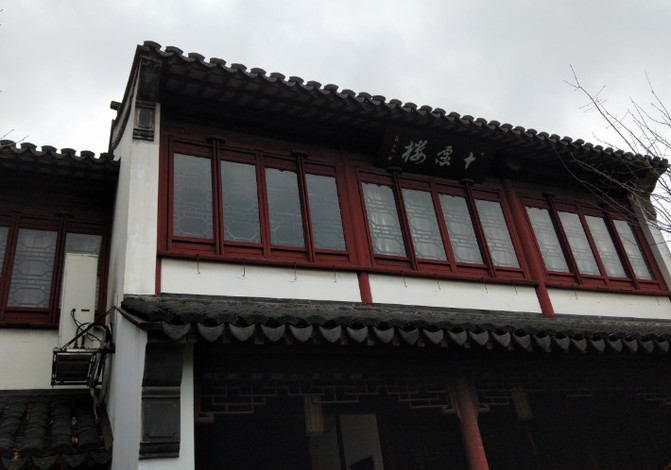
Walking forward are the Dongrong Old House, Yiping Pavilion, and Shiyuan Building. Although the buildings are dense, they are not open, so we can only see the appearance. Shiyuan Building is quite grand. This is the place where the owner of the garden lives and lives. During the late Qing Dynasty, Zhang Hong completed the famous book "Continuation of Nien Haihua" here
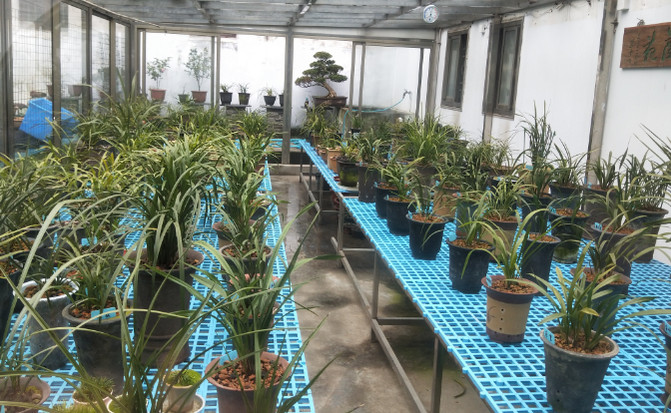
Yanyuan is Yushan Orchid Garden at the end. Because it is not during the Orchid Exhibition period, the Orchid Garden is not open. Even during the orchid exhibition, it seems that there is no bloom. Only pots of orchids with green leaves can be seen from the outside, and there is no sign of blooming yet.
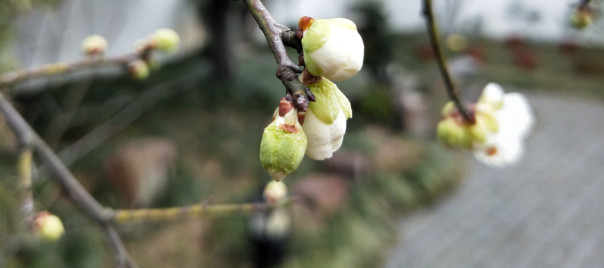
However, the plum blossoms and wintersweet blossoms here are in great bloom, setting off the compact building, with red flowers and red buildings, white flowers and red buildings, and yellow flowers and red buildings. Well, each combination is very beautiful.
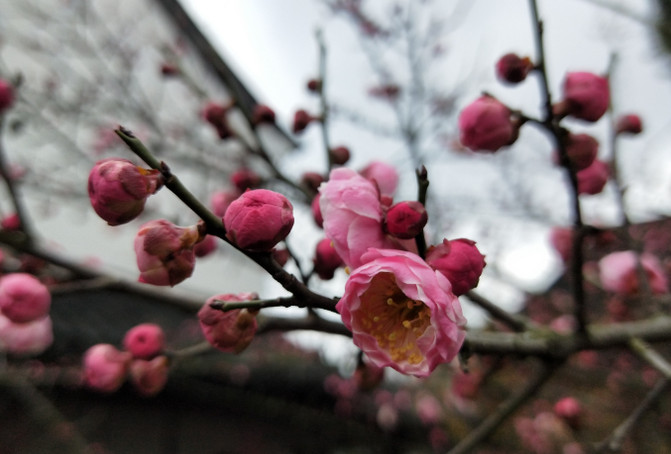
In order to enjoy the beautiful plum blossoms up close, I jumped onto the cement bench beside me. The security guard came over and saw it. I smiled at him sheepishly and immediately jumped off. He just nodded and left without saying anything.
I lingered in the courtyard for a long time until my friends became impatient that I left in love.
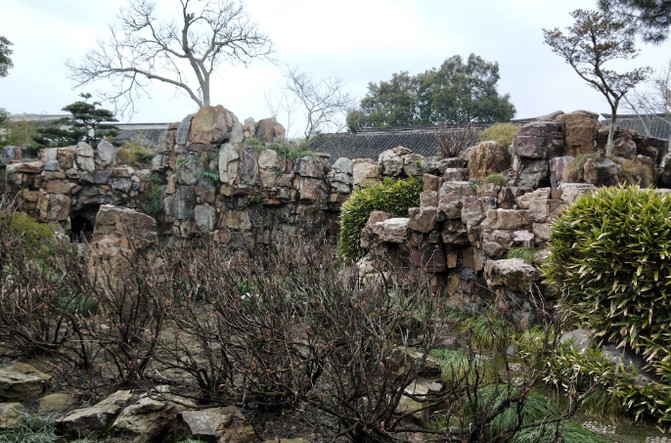
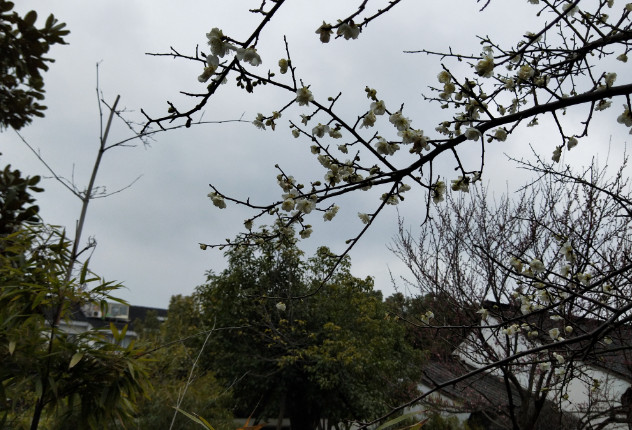
Poetry to remember:
The three chandelian rooms are stacked with fragrance, and the green lotus green corridor of Yan Valley.
In the poetic realm of returning to the boat in the sky, there is a hall of one wish and ten wishes.
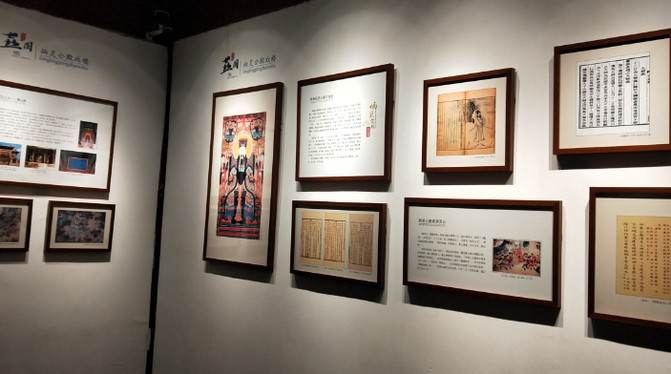
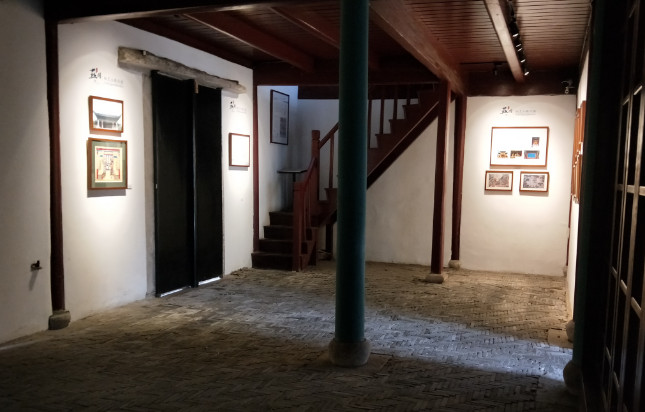
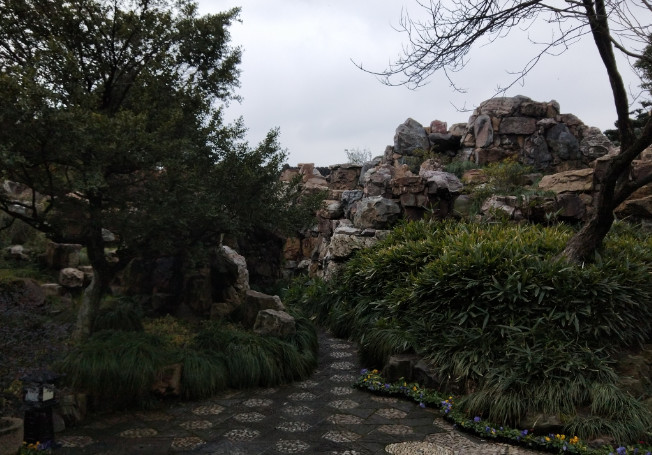
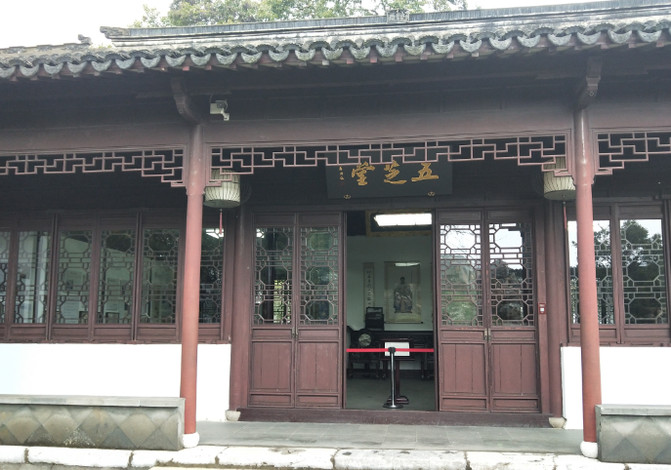
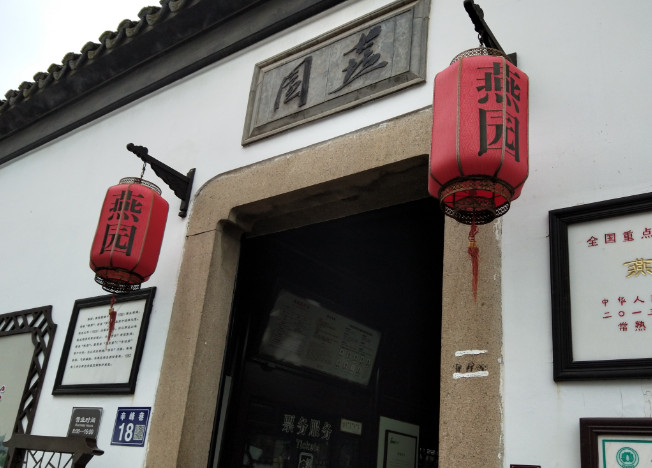
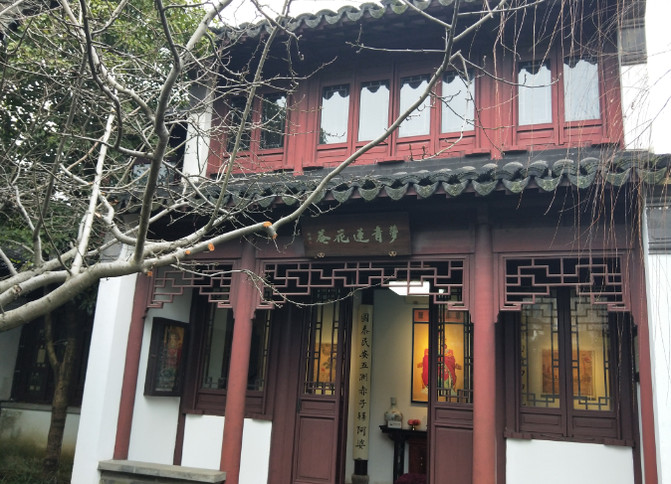
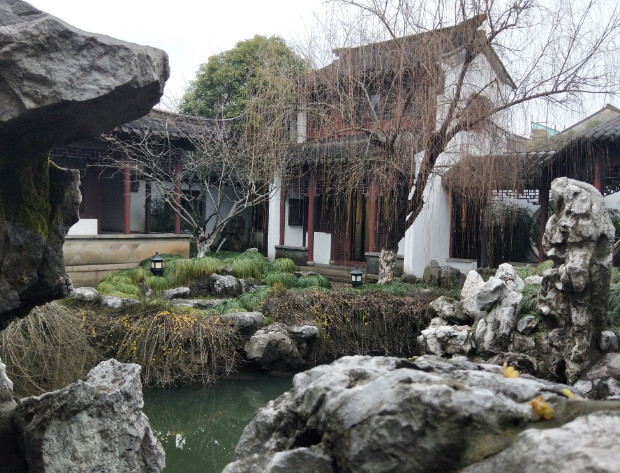
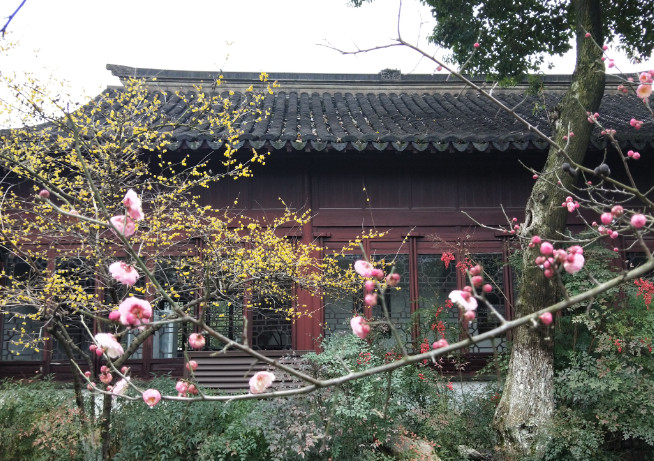
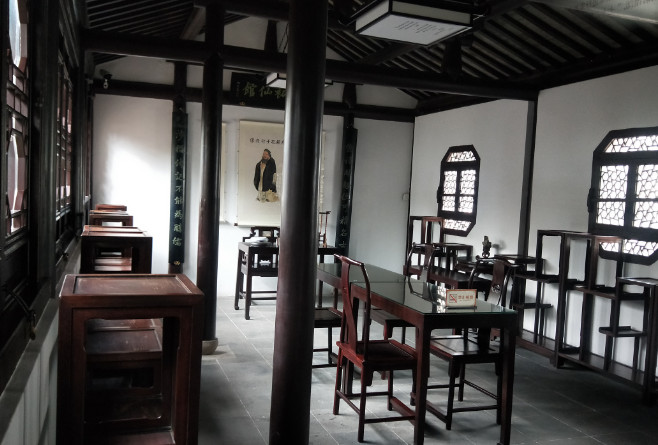
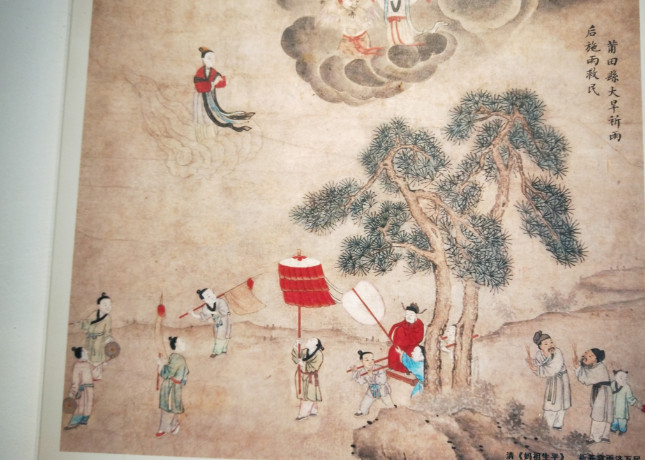
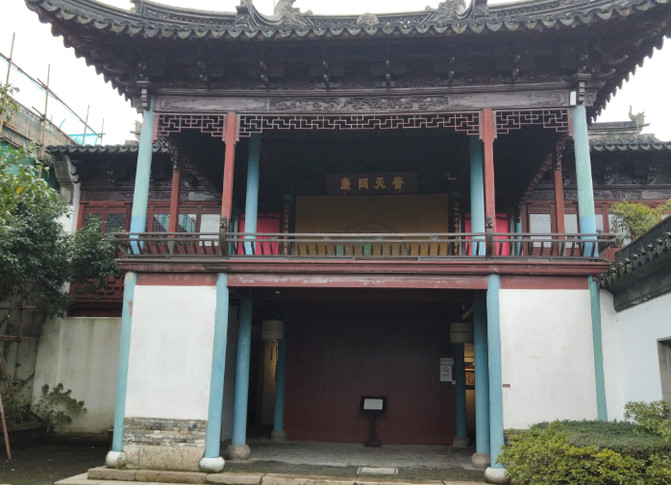
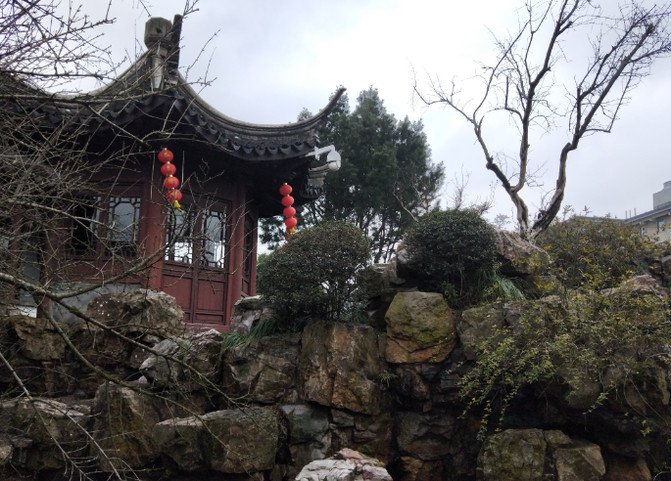
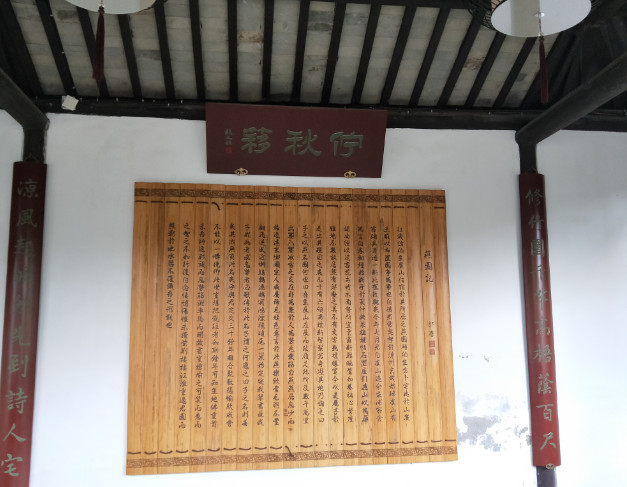
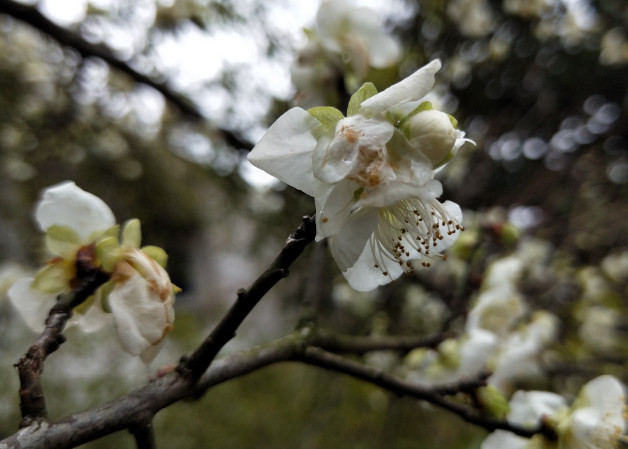
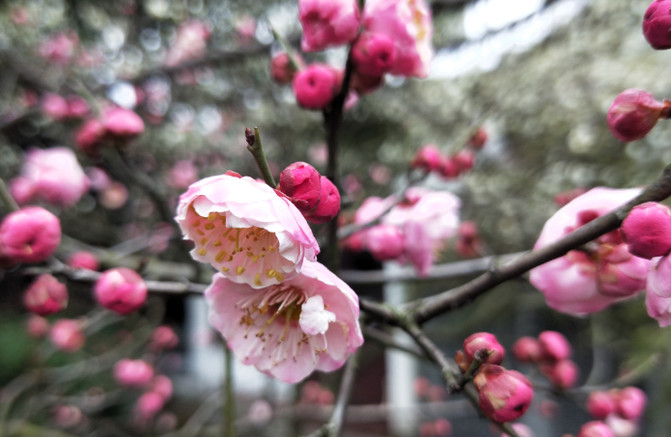
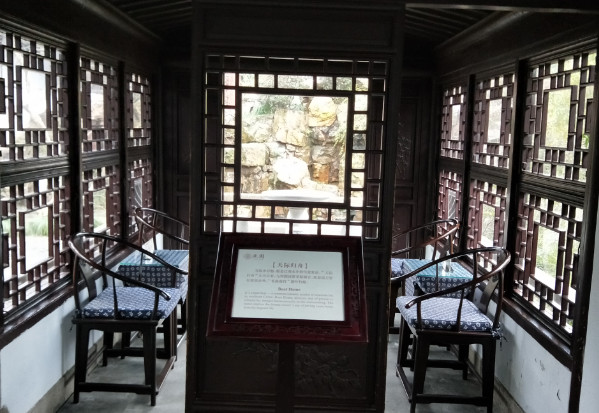
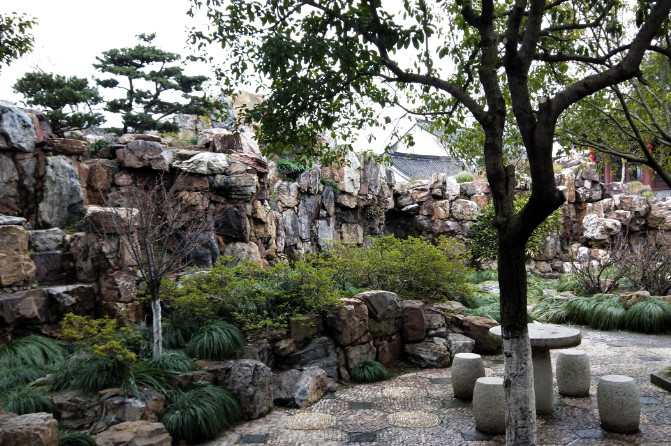
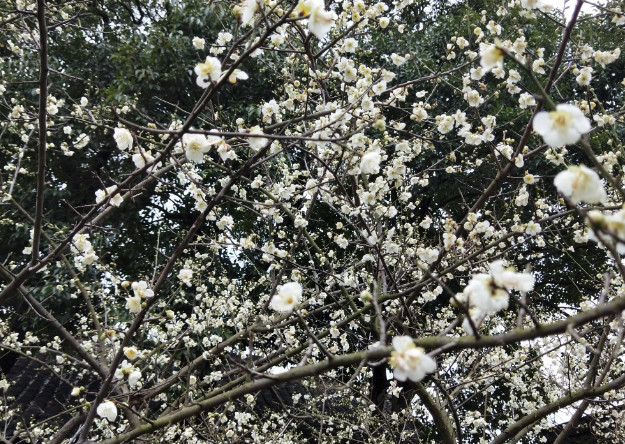
Previous Article:Zhouzhuang, Suzhou: A water town that has lived for 900 years is filled with the life of Jiangnan people everywhere
Next Article:Suzhou-a city that has been yearning for since ancient times
